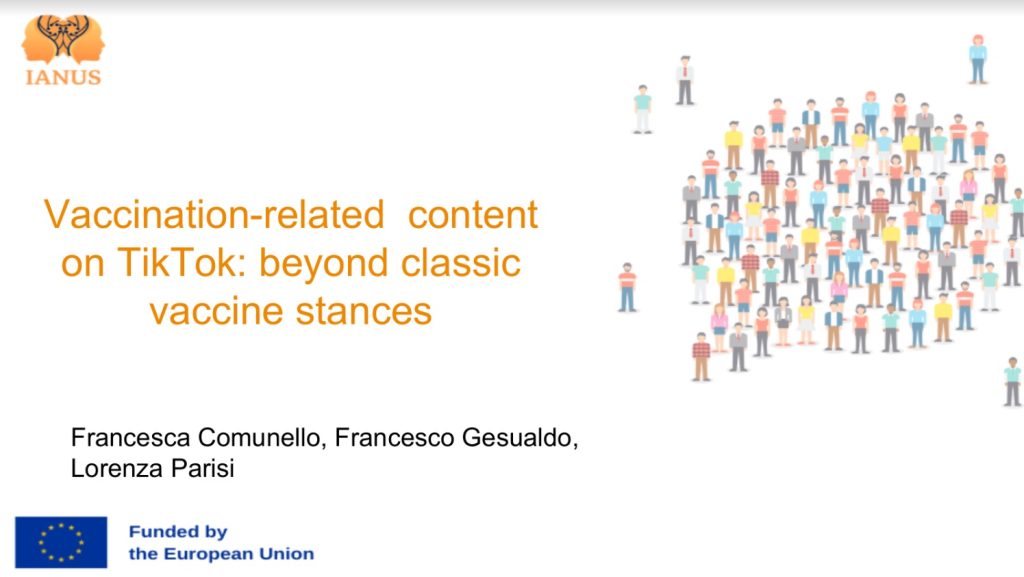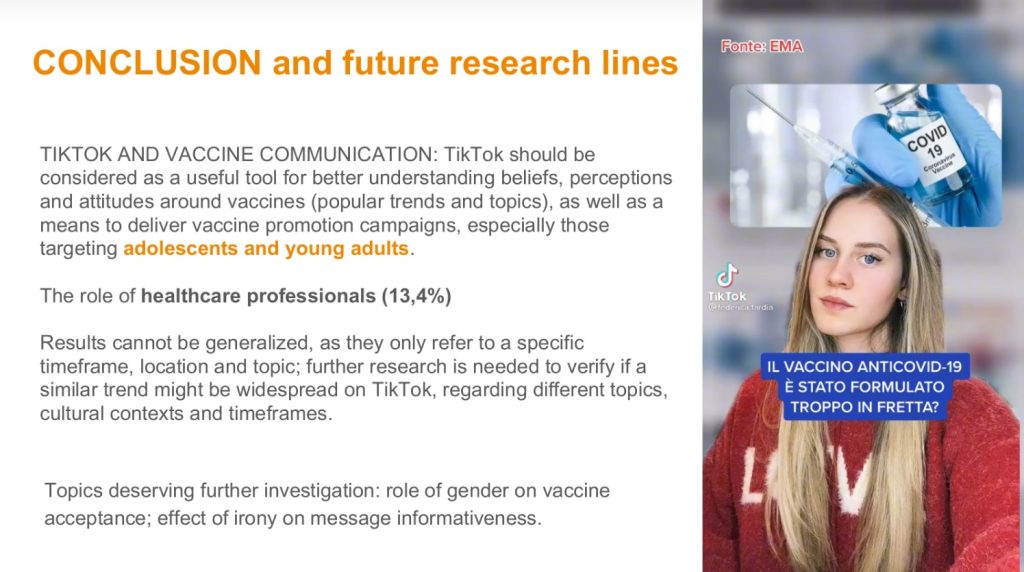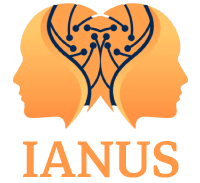Last week, IANUS project partners have met in Rotterdam to join the global discussion on science communication at the Public Communication of Science and Technology PCST Conference 2023.
Francesca Comunello from Sapienza University of Rome presented in session “Communicating science in digital spaces.” Her research, coauthored with partners from the Predictive and Preventive Medicine Research Unit of the Bambino Gesù Children’s Hospital (Rome, Italy) and LUMSA University (Rome, Italy), raises questions regarding what happens when people engage in vaccine conversations on social media, specifically on TikTok.
Indeed, social media have drawn attention as an important source of information on vaccines, as well as a potential means for improving health literacy and vaccine uptake. TikTok especially, a platform for creating and sharing short videos, has seen a surge in popularity during the pandemic, and an increase of scholarly attention, including research analyzing health and vaccine communication, with scholarship recently arguing for the potential of health professionals using TikTok to fight misinformation and reach young people.
The presented research analyzed Italian vaccine conversations on TikTok. Videos were analyzed by downloading a sample of high play count videos from January 2020 to March 2021 by means of an unofficial API, while also including videos from the vaccine sceptic community which, due do them being more difficult to intercept, were collected manually through snowball sampling. This resulted in a corpus of 754 videos plus 179 vaccine sceptic videos. These were analyzed using qualitative and quantitative methods in order to identify characteristics such as vaccine stance, tone of voice, topic, adherence to TikTok style, etc.
Results show that in most of the top videos the stance towards vaccines was promotional (305, 40.5%), with a high proportion of them (131, 43%) being from health care professionals. One third of videos were characterized by an indefinite-ironic stance (256), 85 (11.3%) were neutral, and 73 were discouraging (9.7%). Multiple correspondence analysis showed that creators of promotional videos were more frequently female health care professionals and the most frequent topic they dealt with was herd immunity. On the contrary, discouraging videos were associated with a polemical tone of voice and often dealt with topics such as vaccine and COVID-19 related conspiracies and freedom of choice in vaccination.
The contribution raises important questions on the saliency of online spaces in alimenting both trust and distrust in science. They emerge as powerful tools to disseminate vaccine research and connect with the public, while at the same time allowing health care professionals to address people’s doubts and insecurities about research and innovation. It also highlighted platform differences in vaccine-related conversations, with TikTok conversations being less polarized than on other social media, particularly due to the large representation of ironic videos that disrupt the common divergence between promotional and discouraging.


